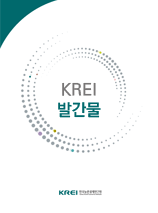요약문
2011년 3월에 일본에서 대규모 지진과 쓰나미가 발생함에 따라 후쿠시마 원자력 발전소에서 방사능이 유출되었다. 유출사고 직후부터 최근까지 우리나라 정부는 일본산 농식품 검역·검사를 강화하고 홈페이지를 통해 방사능 검사실적을 정기적으로 공개하는 등 식품안전성을 확보하고 있으며, 소비자가 식품 안전에 대해 안심할 수 있도록 농림축산식품부, 해양수산부, 식품의약품안전처 등 소관부처별로 다양한 정책적 노력을 기울이고 있다.
그러나 사고 발생 이후 3년여가 지난 후에도 일본 방사능 유출 관련 보도가 지속적으로 이루어지고 있으며, 관련 정보도 다양한 경로를 통해 전달·확대 또는 재생산되면서 소비자의 식품안전성에 대해 불안감이 쉽사리 해소되지 않고 있다. 이러한 소비자의 불안감은 다양한 양상으로 농식품 소비에 영향을 미치고 있다.
이 연구는 일본 방사능 유출사고가 국내 소비자의 농식품 소비에 미치는 영향과 식품안전성 및 정부의 대응에 대한 소비자 인식에 미치는 영향을 살펴보는 것을 목적으로 추진되었다.
This study was done to ① look into countermeasures at home and abroad since the Fukushima Daiichi nuclear accident of March 2011, ② examine how the information regarding Japan’s radioactivity has spread by analyzing the trend of media reports and on-line public opinions, and ③ identify the implications of the nuclear disaster on agricultural food products consumption and people’s awareness through statistics and a consumer survey.
In the aftermath of Japan’s earthquake and tsunami in March 2011, there were radiation leak accidents from the Fukushima Daiichi nuclear power plant. Japan’s Ministry of Health, Labour and Welfare has been striving to secure food safety since then by establishing new regulations regarding foods and investigating radioactive materials in major food items such as marine products. A series of countermeasures have been taken by the Korean government too, led by the Ministry of Agriculture, Food and Rural Affairs and the Ministry of Food and Drug Safety, including reinforced inspection or a ban on imported foods from Japan.
Various reports have been made up until now since the disaster covering radiation leak accidents and progress, status of or criticism for the government’s response, safety promotion, and rising sense of crisis. Such reports have tended to take on a relatively long-term aspect compared to other coverage about general agricultural food safety accidents. The negativity espoused in the media makes it harder for consumers to ease their concerns over radioactivity and food safety.
Providing information regarding radioactivity online takes various forms such as media news coverage, postings on blogs and cyber cafes, and video clips. There had not been much on-line information about radioactivity before March 2011, though it differed by media and means. On the other hand, relevant information increased significantly as consumers became more concerned about radioactivity for 2 to 3 months after the accident. It decreased over time as consumers got less interested in radioactivity before rising again around September 2013.
According to the ‘Household Income and Expenditure Survey’ of Statistics Korea for the household expenditure on agricultural food and livestock products, the overall spending on marine and processed marine products fell after 2011 in terms of both size and ratio. People spent less money especially on fresh marine products such as fish and shellfish (cutlassfish, pollack, clam, etc.).
The consumer survey shows that they are highly anxious about radioactivity and have extremely negative perception toward the safety of Japanese agricultural food products. According to the survey, consumers’ level of agricultural food consumption has changed after the radiation leak, impacting the demand for marine products the most. It is still affecting the agricultural food consumption even after 3 years. There is also low consumer confidence in the government’s efforts to secure agricultural food safety against the nuclear disaster. Consumers recognize that the government should intensify quarantine and safety inspection for imported agricultural food products to promote food safety.
With this radiation leak accident having relatively longer influence than other food safety incidents or accidents, there is a possibility that this issue might be rising again or reignited when circumstances require. In fact, new developments or media coverage related to radioactivity can have huge ripple effects economically and politically, stimulating consumers’ potential anxiety over radiation. Therefore, relevant ministries in charge of the food industry, including the Ministry of Agriculture, Food and Rural Affairs and the Ministry of Food and Drug Safety, should closely monitor the trend of public opinion about radioactivity and come up with long-term countermeasures to secure consumer confidence.
Researchers: Hwang Yun-jae and Lee Dong-so
Research period: 2013. 11. - 2014. 3.
E-mail address: yjhwang@krei.re.kr
구매안내
KREI의 출판물은 판매 대행사 (정부간행물판매센터)와 아래 서점에서 구입 하실 수 있습니다.
판매대행사
- (주)정부간행물판매센터http://www.gpcbooks.co.kr사이트 바로가기
- 서울특별시 중구태평로 1가 25번지
- TEL 02) 394-0337, 734-6818
- FAX 02) 394-0339
판매서점


